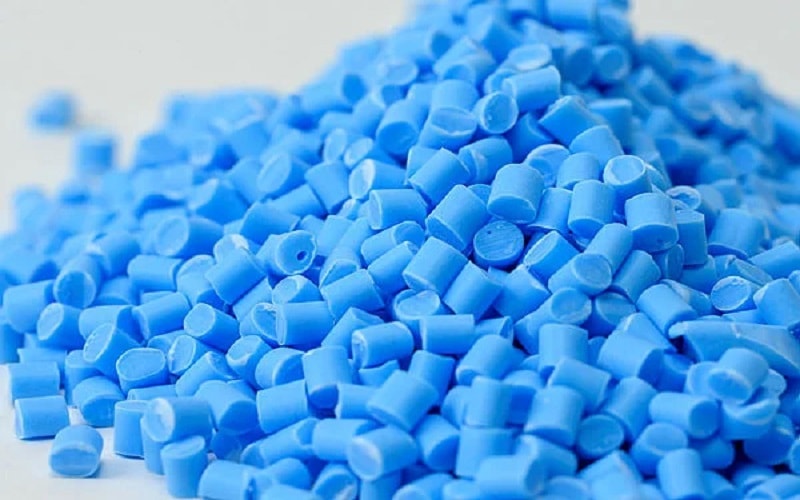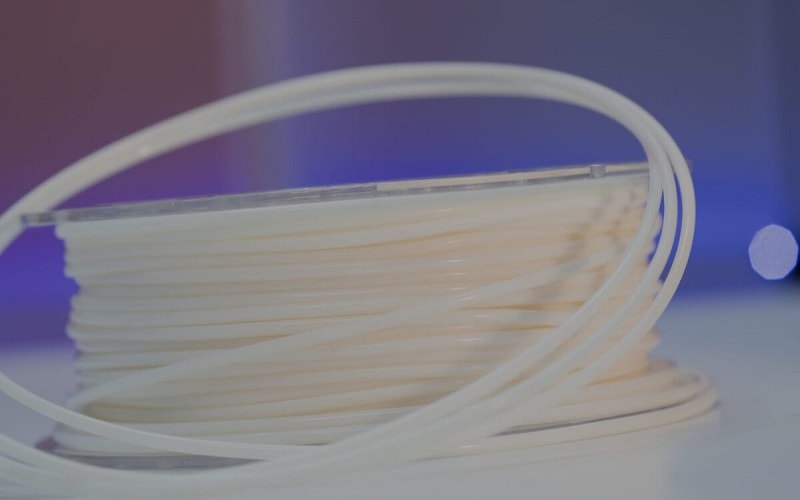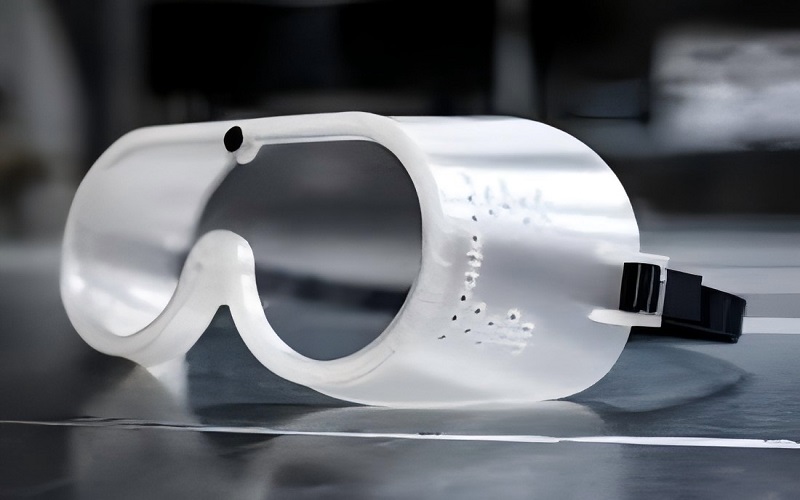Is thermoplastic polyurethane toxic?
This question is critical for industries using thermoplastic polyurethane (TPU), a versatile polymer material known for its excellent abrasion resistance, chemical resistance, and high elasticity.
As a thermoplastic elastomer, TPU material is widely used in specific applications like medical devices, phone cases, and footwear due to its durability and flexibility.
This comprehensive guide explores the safety, composition, mechanical properties, and uses of thermoplastic polyurethane TPU, addressing toxicity concerns while highlighting its unique properties for many products across industries.
Composition and Properties of Thermoplastic Polyurethane
Thermoplastic polyurethane TPU is a block copolymer renowned for its pliable yet resistant nature, making it suitable for different applications.
Understanding its composition and material properties is essential to evaluate its safety and performance.
What is Thermoplastic Polyurethane?
Thermoplastic polyurethane is a block copolymer consisting of alternating sequences of hard segments and soft segments.
The hard segments provide tensile strength and structural integrity, while the soft segments ensure high elasticity and flexibility, distinguishing TPU as a thermoplastic elastomer.
Unlike traditional polyurethane, which forms crystalline structures through a chemical reaction, TPU can be heated, melted, and reshaped via injection moulding or extrusion.
This process allows manufacturers to produce components with customized physical properties, making TPU material ideal for specific applications like phone cases or medical devices.
Polyester vs. Polyether-Based TPUs
TPU is available in polyester-based TPUs and polyether-based TPUs, each with distinct properties.
Polyester-based TPUs offer excellent abrasion resistance and good resistance to solvents, making them suitable for automotive components or footwear.
Polyether-based TPUs provide hydrolysis resistance, resisting moisture degradation, which is critical for medical applications.
By varying the ratio of hard and soft segments, manufacturers can tailor TPU’s mechanical properties to meet specific project needs, ensuring durability and performance.
The composition of thermoplastic polyurethane TPU allows it to outperform plastics like rubber in durability and elasticity.
Its safe raw materials and additives make it a preferred material for industries, but safety concerns require further exploration.

Is Thermoplastic Polyurethane Toxic?
The question “Is thermoplastic polyurethane toxic?” is vital for consumers and manufacturers using TPU material in products requiring safety, such as medical devices or phone cases.
Examining its toxicity profile clarifies its suitability.
Safety in TPU Manufacturing
During production, thermoplastic polyurethane is made from raw materials like isocyanates and polyols, which can be hazardous in their unreacted form.
However, once the chemical reaction is complete, TPU becomes a stable, non-toxic polymer.
The process involves melting pellets in a heated environment, followed by cooling to form a solid structure.
Additives, such as stabilizers or colorants, are carefully selected to enhance material properties without compromising safety.
Reputable manufacturers ensure TPU is safe for contact in specific applications, addressing concerns about is thermoplastic polyurethane toxic.
Safety in End-Use Applications
In end-use products, TPU material is non-toxic and safe for many applications.
Polyether-based TPUs are biocompatible, making them ideal for medical devices like catheters or tubing due to their hydrolysis resistance and flexibility.
In consumer goods like phone cases, TPU’s pliable nature and abrasion resistance ensure durability without releasing harmful substances.
Regulatory standards, such as FDA or REACH, govern TPU production to ensure safety for skin or food contact, confirming its non-toxicity in specific applications.
The safety of thermoplastic polyurethane TPU makes it a trusted material across industries. However, proper manufacturing practices are essential to ensure it remains non-toxic and effective.
Mechanical Properties of Thermoplastic Polyurethane TPU
The mechanical properties of TPU material make it a standout among thermoplastics, offering advantages over rubber or other plastics.
These properties drive its popularity in diverse applications.
Abrasion and Chemical Resistance
Thermoplastic polyurethane TPU boasts excellent abrasion resistance, allowing it to withstand wear in harsh environments like automotive wheels or footwear soles.
Its chemical resistance to solvents and oils ensures durability in industrial settings.
Polyester-based TPUs are particularly resistant to abrasion, making them suitable for coatings or components, while polyether-based TPUs excel in hydrolysis resistance, ideal for medical or outdoor products.
High Elasticity and Tensile Strength
The high elasticity of TPU, driven by its soft segments, allows significant elongation without breaking, making it perfect for flexible products like phone cases.
The hard segments provide tensile strength, ensuring structural integrity. This block copolymer structure balances hard and soft elements, distinguishing TPU from rigid plastics.
Compared to rubber, TPU offers superior durability and elasticity, enhancing performance in specific applications.
The mechanical properties of TPU material enable manufacturers to create components with precision and reliability.
These properties make TPU a versatile choice for many products, from consumer goods to industrial applications.

Manufacturing Processes for TPU Material
Thermoplastic polyurethane TPU is produced using advanced processes that leverage its unique properties.
These methods ensure safety and effectiveness for specific applications.
Injection Moulding and Extrusion Processes
Injection moulding is a primary process for TPU, where pellets are heated in a barrel, melted, and injected into a mold to form components like phone cases or medical devices.
Extrusion creates continuous shapes, such as tubes or films, used in medical applications or coatings. These processes utilize TPU’s thermoplastic nature, allowing it to be melted and cooled without crystalline degradation.
Additives enhance resistance or aesthetic properties, ensuring high-quality production.
Selective Laser Sintering in Additive Manufacturing
Selective laser sintering, an additive manufacturing method, uses a laser to fuse TPU powder into solid parts, ideal for prototyping or complex components.
This process supports intricate shapes with excellent abrasion resistance and high elasticity, expanding TPU’s applications in automotive or medical industries.
The unsintered powder acts as a support, reducing waste and ensuring precision in production.
The manufacturing processes for TPU material ensure it is safe, durable, and versatile, making it suitable for many products while addressing toxicity concerns.
Specific Applications of Thermoplastic Polyurethane TPU
Thermoplastic polyurethane TPU is used in many products due to its durability, flexibility, and safety.
Its unique properties make it ideal for specific applications across industries.
Medical Devices and Applications
Polyether-based TPUs are commonly used in medical devices like catheters, tubing, or wound dressings due to their hydrolysis resistance and biocompatibility.
The high elasticity and soft segments ensure comfort, while chemical resistance protects against solvents in medical settings.
TPU’s non-toxic nature, when produced with safe raw materials, makes it suitable for contact with the body, ensuring performance in medical applications.
Automotive and Industrial Components
Polyester-based TPUs are used in automotive components like wheels, dashboards, or coatings, leveraging their excellent abrasion resistance and tensile strength.
TPU’s resistance to solvents and durability make it ideal for industrial components like seals or gaskets.
The hard and soft segments ensure reliability in harsh environments, enhancing product longevity.
Consumer Goods and Footwear
TPU material is a popular choice for consumer goods like phone cases, sports equipment, and footwear soles due to its high elasticity and abrasion resistance.
Its pliable nature allows manufacturers to form flexible shapes, while customizable colors or textures enhance aesthetic appeal.
In footwear, TPU balances rubber-like elasticity with plastic-like durability, making it perfect for athletic shoes.

Safety and Toxicity Considerations for TPU
Ensuring the safety of thermoplastic polyurethane TPU is critical for its use in specific applications.
Addressing toxicity concerns helps consumers and manufacturers use TPU confidently.
Managing Raw Materials and Additives
The raw materials in TPU production, such as isocyanates, can be hazardous if not fully reacted.
Reputable manufacturers ensure the chemical reaction is complete, resulting in a stable, non-toxic polymer.
Additives like flame retardants must be safe to avoid toxicity.
Regulatory compliance ensures TPU is suitable for contact in medical devices or consumer goods, addressing is thermoplastic polyurethane toxic concerns.
Safe Handling and Environmental Impact
TPU’s chemical resistance ensures it does not release toxic substances during use.
However, heating TPU during injection moulding or extrusion requires proper ventilation to avoid fumes from additives.
Consumers using phone cases or footwear face minimal risk, as TPU is designed for safe contact.
Manufacturers should follow guidelines to ensure safe production processes, minimizing environmental impact.
Conclusion
Is thermoplastic polyurethane toxic?
When produced with high-quality raw materials and additives, thermoplastic polyurethane TPU is a safe, non-toxic polymer material ideal for specific applications.
As a block copolymer with hard and soft segments, TPU offers excellent abrasion resistance, chemical resistance, and high elasticity, making it suitable for medical devices, phone cases, footwear, and automotive components.
By understanding TPU’s composition, safety, and applications, consumers and manufacturers can leverage its unique properties for many products.
Contact a trusted TPU supplier today to explore suitable options and achieve high-performance results in your projects.

